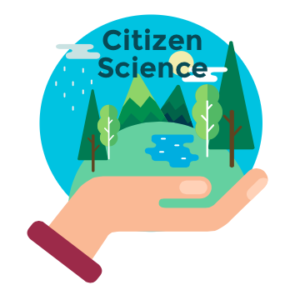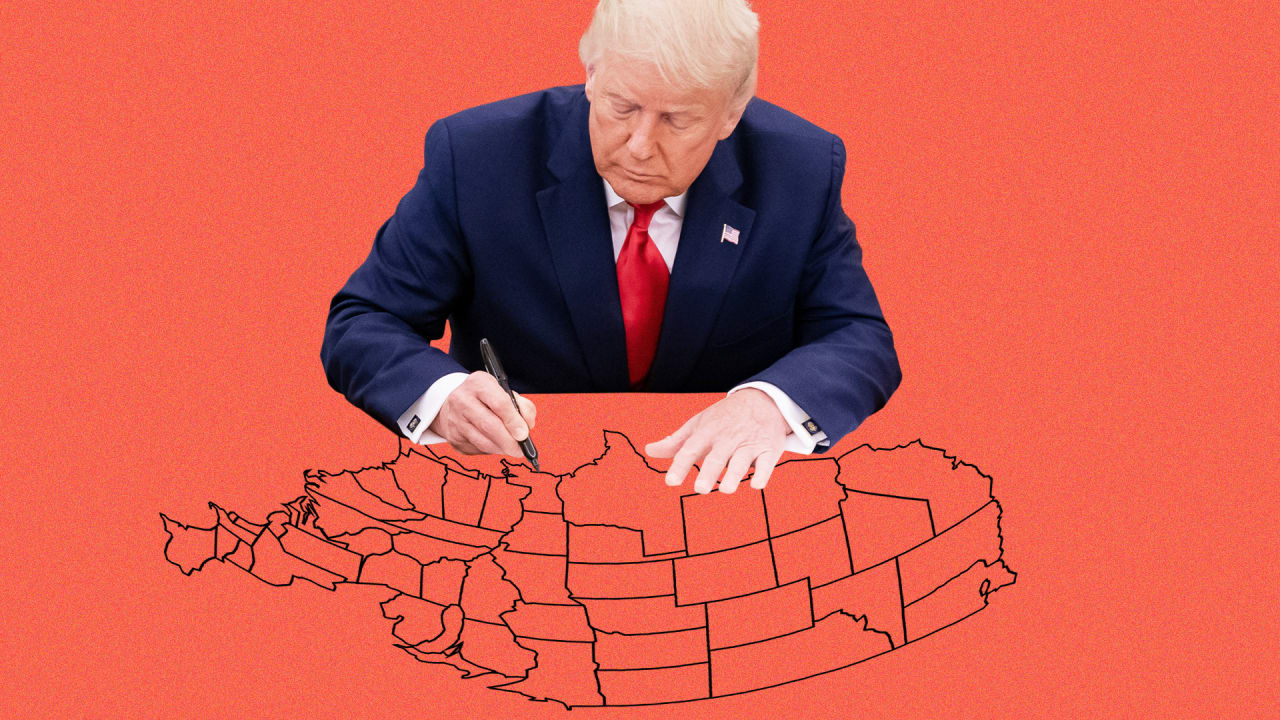This special report on science and public policy in the age of Donald Trump has been prepared for The Path Forward blog by Benjamin K. Harrison, Phd., a CalTech-trained environmental microbiologist. Harrison is co-founder of the Data Engagement and Access Project, an environmental organization dedicated to expanding citizen use of environmental data at the local level.
Donald Trump’s wrongs against science range from the criminal (pushing hydroxychloroquine as a treatment for COVID-19 for the sake of political advantage) to the trivial (modifying a weather map with a sharpie). He has famously denied the science behind climate change (“a Chinese hoax”; “it’ll start getting cooler… you just watch”) and misrepresented other important areas of research (forest management, meteorology) in order to downplay it. He has fought against ethical, effective response to COVID-19 since before it existed, removing or ignoring government infrastructure designed to protect against pandemics.
He downplayed the COVID threat, mistimed or misdirected every effort to slow the spread at the borders, pushed treatments that were either unverified (at first) or demonstrably ineffective, and actively fought against life-saving public health efforts (masks, social distancing). Trump’s desperate promotion of an early vaccine has ruined any confidence the public could muster, even should the considerable research power of the nation and world achieve an accelerated timeline. He pulled the nation out of the World Health Organization in the midst of a global pandemic over political pique.
No Republican voice in Congress has adequately worked against Trump’s intent to place his political fortune before American lives and livelihoods. They all deserve to be voted from office over matters of science.
Scientists and allies often make the mistake of treating any individual attack on science in isolation. Certainly, each separate issue needs to be diligently communicated to the public, and each deserves a good faith discussion pairing advocacy and skepticism. Unfortunately, this can be insufficient, because Republican opposition to science and damage to scientific institutions is not targeted at any particular topic. The arguments against COVID recycle the ammunition of the fights against climate science, against evolution, and against tobacco regulation. Each has these characteristics:
- Amplifying the voices of token, select “experts” against scientific consensus (sometimes even using the same contrarian voices, regardless of subject).
- Using the innate uncertainty of science to demand perpetual, excessive skepticism and inaction.
- Attacking the character and ethics of scientists to separate them from the lay public.
- Exploiting the media’s propensity to voice “all sides” without revealing their proportional representation.
Some things we learned about science in school are inaccurate.
Not “wrong” or “false” – the truth of any scientific matter is always the goal, but rarely the conclusion. Consider an example from K-12 biology: life may be classified into 4+ distinct kingdoms. Most of us first learned from such a system in grade school, but we know now that it has some shortcomings (e.g., poor representation of evolutionary descent). Based on evidence gathered from widespread genetic sequencing, Carl Woese and colleagues published a seminal article in 1990, dividing all life into 3 “Domains” – Archaea, Bacteria, Eucarya – in which the common descent of all life on Earth is more clearly depicted. Woese’s model, too, has some weaknesses – it’s hard to imagine any classification scheme could avoid that caveat… or ultimately resist improvement. Moreover, any rigorous descriptive system (including the kingdom classification) may be useful in specific circumstances and weak in others.
The empirical foundation of science we learned in grade school is still intact – it is iterative and infinite, as each observation generates a hypothesis and each hypothesis is tested by observation. To be “wrong” is often a necessary step in becoming more knowledgeable. This process is inherently communal – there is no rational problem that cannot be more readily solved by more observers (including laypeople) acting in good faith. Where science becomes entangled with politics or other public pressure, the most common error is to short-circuit the process – to seek or promote only such evidence as fits a preconceived notion.
One early scandal within the broad COVID-19 crisis illustrates both the failings and resiliencies of public science. In May, respected medical journals The Lancet and the New England Journal of Medicine published COVID articles that relied on data ostensibly collected by a small, private data science company, Surgisphere. In June, both articles were retracted, after careful observers pointed out implausible characteristics of the data (e.g., a count of Australian deaths that exceeded government records) and the company refused a full independent audit. The overwhelming demand to publish often, to disseminate research in key journals, or to discover breakthroughs that generate private investment each conflict with professional ethics at the best of times. The justifiable need to treat or cure COVID-19 only increases the pressure, and we should anticipate that some researchers will fail that ethical test, consciously or unconsciously.
We should expect the scientific community and the public at large to correct mismanaged research. Rigorous analysis is needed to detect errors that eluded the first pass of peer review in academic journals and to demonstrate error through further investigation. In the COVID case, this is poor consolation when a policy impact of bad research outpaces correction. Time, evidence, and good science eventually leave us better informed and better able to use that knowledge in public policy on any given topic, even if not so quickly as we would prefer.
Public support for that good science is somewhat sheltered from Trump misadministration by balkanized government oversight – the Departments of Defense, Energy, Interior (US Geological Survey), Commerce (NOAA), and HHS (NIH) all have roles in science funding. EPA and NASA are independent agencies. At least four Senate committees and six House committees exercise meaningful authority over science issues. The professional ranks of government agencies are still filled with earnest, qualified practitioners. If we elect representatives who practice sensible support of science and choose qualified political appointees, the science infrastructure of government will recover from these past four years.
The same cannot so easily be said for institutional damage to the scientific process. Like democracy, science benefits from earnest participation. As with democracy, Republicans have done lasting damage to science by discouraging engagement and spreading misinformation on the process.
Beyond defeating the GOP in November, there are 3 targeted ways to help:
| 1) Join in Citizen Science and Community Science | |
 | Republican mythology on the “ivory tower” implies science is done by “other” people, academics unconcerned with the livelihood of the public and disconnected from their reality. Everyone can do science, and scientists are real people living in our communities. The greatest limitation on who conducts the research that informs policy is the choice to participate. Local school districts, universities, city, county and state-level agencies need volunteers and often offer training. For example, the University of Washington is affiliated with projects helping volunteers monitor beach waste and seabird mortality. Zooniverse facilitates numerous research projects which volunteers can assist from their own computers. There is nothing anyone can teach community members about the scientific method that surpasses the learning experience of participation. One of the best things we can do for science education, as well, is to discover such experiential learning opportunities for our children. |
2) Support Science Policy Organizations | |
 | There are many worthy scientific organizations for membership, volunteering, and contributions, covering a variety of missions from advocacy (Union of Concerned Scientists) to education (National Association of Geoscience Teachers; National Science Teachers Association, and the American Association for the Advancement of Science). 314 Action works to directly elect scientists to public office, including providing training in conducting political races. In the 2018 cycle the group helped support eight successful candidates for the House of Representatives, one Senator, and boosted many state-level legislative races. |
3) Contribute to Targeted Races | |
 | In April, Dr. Rick Bright was removed from his position as director of the US government’s Biomedical Advanced Research and Development Authority, seemingly over his concerns with the government’s focus on hydroxychloroquine, and after he filed a whistleblower complaint. He testified in May before the House Energy and Commerce committee. One of the Republicans who attacked Bright (and boosted hydroxychloroquine) was Richard Hudson (NC-08). He alleged “this hearing is not about a whistleblower complaint… it's about undermining the administration during a national and global crisis.” Hudson is in a competitive race (PVI R+8, leans Republican by Cook Political Report) against Patricia Timmons-Goodson. Also, In the Senate, Cory Gardner has embraced Trump and attacked public health experts for “politicizing” the pandemic.5 In November, we have the opportunity to replace Gardner with former professional geologist John Hickenlooper. |
COVID in America is clear evidence of the consequences of anti-science demagoguery Republicans have promoted for decades. Conservatives have not managed to fully silence voices in national and state government promoting responsible public health. They have not managed to silence our collective knowledge of responsible conduct. With effort, we can take that lesson and meet future crises in health and environmental change.
Benjamin K. Harrison



